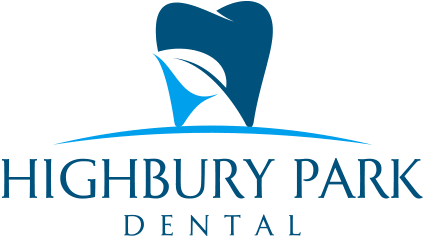Reasons to Ask Your Dentist to Screen for
Early Detection of Oral Cancer
When most people visit the dentist for a checkup, the worst thing on their mind is having their teeth cleaned and maybe a cavity. Oral cancer is not usually something you think about.
But what you may not realize is that your dentist can – and should – screen for potential oral cancer during a regular checkup. Especially considering an estimated 4,700 Canadians were diagnosed with oral cancer in 2017, according to the Canadian Cancer Society.
While this may sound frightening, consider the fact that the 5-year survival rate of those diagnosed with oral cancer is approximately 60%. And early detection of oral cancer by your dentist can result in even better outcomes.
So, whether you’re noticing something is off or not, it’s important to get regular screening while at the dentist.
What Is Oral Cancer?
Oral cancer is a type of cancer that can occur in any of the following areas of the mouth:
- Lips
- Gums
- Tongue
- Inside the cheeks
- Roof of the mouth
- Under the tongue
Oral cancer typically appears as a growth or sore inside the mouth that does not go away.
What Are the Symptoms?
Symptoms of oral cancer can appear during very early stages of the disease.
The most common symptom of oral cancer is a painful sore inside the mouth or on the lip that doesn’t heal within two weeks, or pain in the mouth that doesn’t go away.
Other common symptoms of oral cancer include:
- Swelling in the mouth
- Crusted/eroded spots on lips, gums, or inside the mouth
- Numbness or pain when you bite down
- White, red, or speckled patches in the mouth
- Unexplained bleeding in the mouth
- Difficulty chewing, swallowing, or speaking
- Chronic sore throat
- Ear pain
- Dramatic weight loss
Keep in mind that what may seem like a symptom of oral cancer could be caused by other health conditions. Which is why it’s so important to see your dentist for further examination.
Causes of Oral Cancer
While there is no direct cause of oral cancer, doctors have identified certain risk factors that could possibly increase your chances of developing the disease.
For instance, adults – particularly men – over the age of 40 are of higher risk of developing oral cancer than women and other age groups.
Additional risk factors include:
- Tobacco use (cigarettes, cigars, pipes, chewing tobacco, etc.)
- Heavy alcohol consumption
- Sun exposure
- Human papillomavirus (HPV)
- A weakened immune system
However, this doesn’t necessarily mean you will actually develop oral cancer. In fact, many people are diagnosed with oral cancer every year who are not considered high risk.
How Can Oral Cancer Be Prevented?
The only known ways to help prevent oral cancer include refraining from smoking or using tobacco products, limiting alcohol consumption, eating a healthy, balanced diet, and limiting sun exposure.
However, refraining from all of these things will not guarantee that you won’t get oral cancer.
How A Dentist Can Help with Early Detection
Your dentist can help detect early signs of oral cancer by conducting an oral cancer screening exam during a regular checkup. They will also ask about any symptoms you may have experienced.
During the exam, your dentist will look and feel for lumps, sores, and any irregular or discoloured tissue.
A biopsy will be needed to determine if any irregularities are in fact cancer and to make an official diagnosis.
What Happens If Something Is Detected?
While a dentist is unable to actually diagnose oral cancer, if something suspicious is detected during a screening exam that could indicate oral cancer, they will do a biopsy and send it off to a lab for testing.
During the biopsy, they may either cut away a sample of tissue using a special too or use a needle.
Once it is sent off, a follow-up report from the pathologist will state whether or not the sample contained any cancerous cells.
If cancerous cells were found, a diagnosis could be made, and your doctor will carry out additional tests to determine which stage the cancer is at and develop a course of treatment.
The Importance of Getting Screened at the Dentist
If it’s caught early enough, oral cancer can be very easily and successfully treated, and has a high survival rate. For this reason, having your dentist conduct an oral cancer screening exam is critical. In fact, a dental health professional is able to detect early signs of oral cancer in around 84% of all cases. So, what are you waiting for?
According to the American Cancer Society, oral cancer screening exams should be conducted every 3 years for adults over the age of 20 and annually for those over 40. So, next time you pay a visit to your dentist, be sure to ask for an oral cancer screening exam to ensure that if you do have oral cancer, it’s detected early enough.

